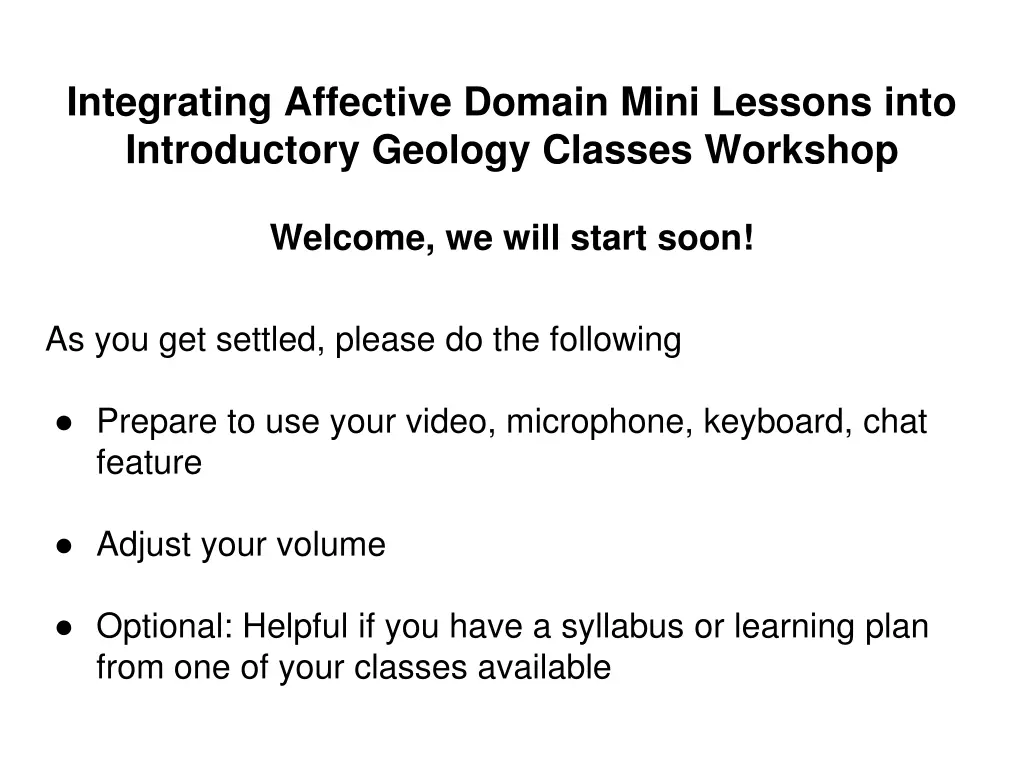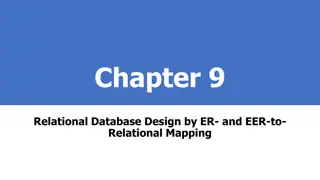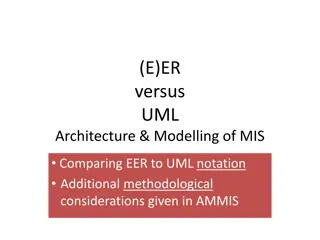
Integrating Affective Domain Mini Lessons into Introductory Geology Classes Workshop
Explore the importance of integrating affective domain mini lessons into introductory geology classes. Learn how to identify and address student struggles in this workshop led by experts in the field. Enhance your teaching strategies for student-centered learning.
Download Presentation

Please find below an Image/Link to download the presentation.
The content on the website is provided AS IS for your information and personal use only. It may not be sold, licensed, or shared on other websites without obtaining consent from the author. If you encounter any issues during the download, it is possible that the publisher has removed the file from their server.
You are allowed to download the files provided on this website for personal or commercial use, subject to the condition that they are used lawfully. All files are the property of their respective owners.
The content on the website is provided AS IS for your information and personal use only. It may not be sold, licensed, or shared on other websites without obtaining consent from the author.
E N D
Presentation Transcript
Integrating Affective Domain Mini Lessons into Introductory Geology Classes Workshop Welcome, we will start soon! As you get settled, please do the following Prepare to use your video, microphone, keyboard, chat feature Adjust your volume Optional: Helpful if you have a syllabus or learning plan from one of your classes available
Integrating Affective Domain Mini Lessons into Introductory Geology Classes Workshop Earth Educators Rendezvous 2021 Workshop Leaders Julie Sexton, University of Colorado Boulder Molly Jameson, University of Northern Colorado Jennifer Wenner, University of Wisconsin Oshkosh Dina London, University of Northern Colorado This project is supported by the National Science Foundation Grant #1834666 & #1949737. All findings and opinions are those of the authors, not necessarily of the funding agency.
Workshop Learning Outcomes 1. Describe how affective domain is important for student learning 1. Identify how and when to integrate lessons into your own class 1. Identify affective domain areas students may struggle with
Agenda 1. Logistics 2. Overview of Project 3. Affective Domain Introduction LO: 1. Describe how affective domain is important for student learning 4. Overview of Lessons 5. Exploration and Application of Lessons LO: 2. Identify how and when to integrate lessons. LO: 3. Identify affective domain areas students struggle with 6. Large Group Sharing and Project Next Steps 7. Wrap-Up and Workshop Evaluation
Agenda 1. Logistics 2. Overview of Project 3. Affective Domain Introduction LO: 1. Describe how affective domain is important for student learning 4. Overview of Lessons 5. Exploration and Application of Lessons LO: 2. Identify how and when to integrate lessons. LO: 3. Identify affective domain areas students struggle with 6. Large Group Sharing and Project Next Steps 7. Wrap-Up and Workshop Evaluation
Agenda 1. Logistics 2. Overview of Project 3. Affective Domain Introduction LO: 1. Describe how affective domain is important for student learning 4. Overview of Lessons 5. Exploration and Application of Lessons LO: 2. Identify how and when to integrate lessons. LO: 3. Identify affective domain areas students struggle with 6. Large Group Sharing and Project Next Steps 7. Wrap-Up and Workshop Evaluation
Poll Do geoscience students struggle with math skills and/or math anxiety? a. Yes, I have noticed students struggling with math skills and/or math anxiety. a. No, I have not noticed students struggling with math skills and/or math anxiety. a. I am not sure if students struggle with math skills and/or math anxiety.
Women in Geoscience Women continue to be underrepresented in geoscience. There has been limited research to identify barriers for women to persist in geoscience. Math is recognized as one barrier to female student selection and persistence in STEM disciplines. This project addresses math as a barrier for female student selection of and retention and success in geoscience.
Math Barrier: Math skill or beliefs about math skills? Geoscience Professor One of the key things affecting female students' retention is that they have poor mathematics skills and they are coming in ill prepared Students I am very poor at math, that s one of the reasons why I initially chose to major in art, because I m not good at math" (female geology major) I hate math. If you re a person like me who avoids math at all costs, calculus can be very hurtful" (female geology major) I have always struggled with numbers. My feelings about math tend to be negative. Playing simple games with adding or subtracting puts me into a negative mood. I have physical reactions like sweating and restlessness when doing things involving math. (female student in intro geoscience class)
How are we addressing math as a barrier? Lessons for introductory geology classes to improve beliefs about math and to improve math skills Geoscience Success Lessons (GSLs) (these are the mini lessons)
How are we addressing math as a barrier? What is the best way to reduce math as a barrier? Intervention 1 6 Affective Domain Lessons Improve beliefs about math skills Intervention 2 6 Math Skills Lessons Increase female student success and recruitment and retention Improve math skills Intervention 3 3 Affective Domain Lessons and 3 Math Skills Lessons
How are we addressing math as a barrier? What is the best way to reduce math as a barrier? Intervention 1 6 Affective Domain Lessons Improve beliefs about math skills Intervention 2 6 Math Skills Lessons Increase female student success and recruitment and retention Improve math skills Intervention 3 3 Affective Domain Lessons and 3 Math Skills Lessons
Agenda 1. Logistics 2. Overview of Project 3. Affective Domain Introduction LO: 1. Describe how affective domain is important for student learning 4. Overview of Lessons 5. Exploration and Application of Lessons LO: 2. Identify how and when to integrate lessons. LO: 3. Identify affective domain areas students struggle with 6. Large Group Sharing and Project Next Steps 7. Wrap-Up and Workshop Evaluation
Learning Story Molly s Story: I just burst into tears and ran from the room! I ve always been pretty good at math, though it was never my favorite subject. I got mostly As in high school but avoided taking any higher level math. When I got to college, I knew I wanted a research career. But I was surprised to learn that I needed to take quantitative courses for this career. This year I took my first required math course: statistics. From day 1 of the class, I felt like I had no idea what was going on. The professor, Dr. Sheets, sounded like they were speaking in another language. I d look around at my classmates to seek confirmation that they were also confused, but everyone else seemed to understand what he was saying. Every class, my mind would go fuzzy, my heart would start to pound, and nothing Dr. Sheets said made any sense. I was so confused; I am a good student, I went to every class, read every chapter, and did every assignment. But I still felt so apprehensive and confused about this class. I knew we had a test coming up, so I started studying in plenty of time. But the day of the test, Dr. Sheets handed me the test and my mind went blank! All the letters, numbers, and symbols started swimming on the page. I couldn t remember anything, and I felt so dumb. I wrote my name at the top, determined to try to take the test. But after a few minutes I felt like I couldn t even breathe. I handed Dr. Sheets the blank test, just burst into tears, and ran from the room!
Agenda 1. Logistics 2. Overview of Project 3. Affective Domain Introduction LO: 1. Describe how affective domain is important for student learning 4. Overview of Lessons 5. Exploration and Application of Lessons LO: 2. Identify how and when to integrate lessons. LO: 3. Identify affective domain areas students struggle with 6. Large Group Sharing and Project Next Steps 7. Wrap-Up and Workshop Evaluation
Lesson Characteristics Instructor does not need to be an expert Research-based affective domain topics Research-based teaching strategies Learning outcomes Assessment and activities linked to learning outcomes Formative and summative assessment Flexible Self-paced Fully online or hybrid model (some aspects online and some aspects in class/lab) Lessons can be taught in any order Situated within geoscience context
Lesson Components 1. Reading 2. Practice Problems (formative assessment to test learning from reading) 3. Assessment (low-stakes assessment to test learning from reading) 4. Application Activity (to apply reading learning)
4. Application Activity Completed online or during class/lab.
Agenda 1. Logistics 2. Overview of Project 3. Affective Domain Introduction LO: 1. Describe how affective domain is important for student learning 4. Overview of Lessons 5. Exploration and Application of Lessons LO: 2. Identify how and when to integrate lessons. LO: 3. Identify affective domain areas students struggle with 6. Large Group Sharing and Project Next Steps 7. Wrap-Up and Workshop Evaluation
Breakout Rooms 1. We will move you into breakout groups 2. In your breakout group, find your breakout group number in zoom (also found at the top of the Zoom window). 1. Find your breakout group number in the list on the slides below and go to the google doc link associated with your group number. 2. Follow the instructions and steps at that link.
Breakout Group Steps STEP 1: Community Building Activity 8 minutes STEP 2: Review Group Norms and Important Information 2 minutes STEP 3: Individually explore the lesson assigned to you 25 minutes STEP 4: Discuss your lesson with your group (you will report out 1-2 main points) 15 minutes STEP 5: Summarize discussion to prepare to share in large group 5 minutes Break 5 minutes Total duration 60 minutes
Breakout Group Links This is Slide 28 Find your breakout group # in zoom and below. Click on the Click here to access your group instructions. Full links are in the notes section of the slide Group 1 Click here Group 2 Click here Group 3 Click here Group 4 Click here Group 5 Click here Group 6 Click here Group 7 Click here Group 8 Click here Group 9 Click here Group 10 Click here Group 11 Click here Group 12 Click here
Agenda 1. Logistics 2. Overview of Project 3. Affective Domain Introduction LO: 1. Describe how affective domain is important for student learning 4. Overview of Lessons 5. Exploration and Application of Lessons LO: 2. Identify how and when to integrate lessons. LO: 3. Identify affective domain areas students struggle with 6. Large Group Sharing and Project Next Steps 7. Wrap-Up and Workshop Evaluation
Large Group Sharing Each group will have 1 minute to share 1-2 key points or highlights from your breakout group discussion. If you want to ask a question or make a comment, put an asterisk (*) in the chat.
Wrap Up: Project Next Steps Project next steps: Short Term 1. Continue small scale piloting of lessons 1. Continue collecting and analyzing data to understand impact on students 1. Create instruction pages for instructors on how to implement the lessons 1. Develop a project to scale-up the project to larger number of classes and institutions
Invitation to Participate and Provide Additional Feedback 1. Looking for a couple of faculty/departments interested in piloting lessons in Fall 2021 semester. 1. Looking for faculty/departments interested in piloting lessons in future scale-up project (likely 2023). 1. Looking for any additional feedback on how to improve current lessons. There is a place in the breakout group Step 3 section where you can communicate your interest. Or can contact Julie directly: julie.sexton@colorado.edu
Agenda 1. Logistics 2. Overview of Project 3. Affective Domain Introduction LO: 1. Describe how affective domain is important for student learning 4. Overview of Lessons 5. Exploration and Application of Lessons LO: 2. Identify how and when to integrate lessons. LO: 3. Identify affective domain areas students struggle with 6. Large Group Sharing and Project Next Steps 7. Wrap-Up and Workshop Evaluation
Thank you! Contact Us! Questions? Evaluation. Contact us! Julie: julie.sexton@colorado.edu Molly: molly.jameson@unco.edu Jen: wenner@uwosh.edu Dina: dina.london@unco.edu Remaining Questions? EER Workshop Feedback Survey This project is supported by the National Science Foundation Grant #1834666 & #1949737. All findings and opinions are those of the authors, not necessarily of the funding agency.






















